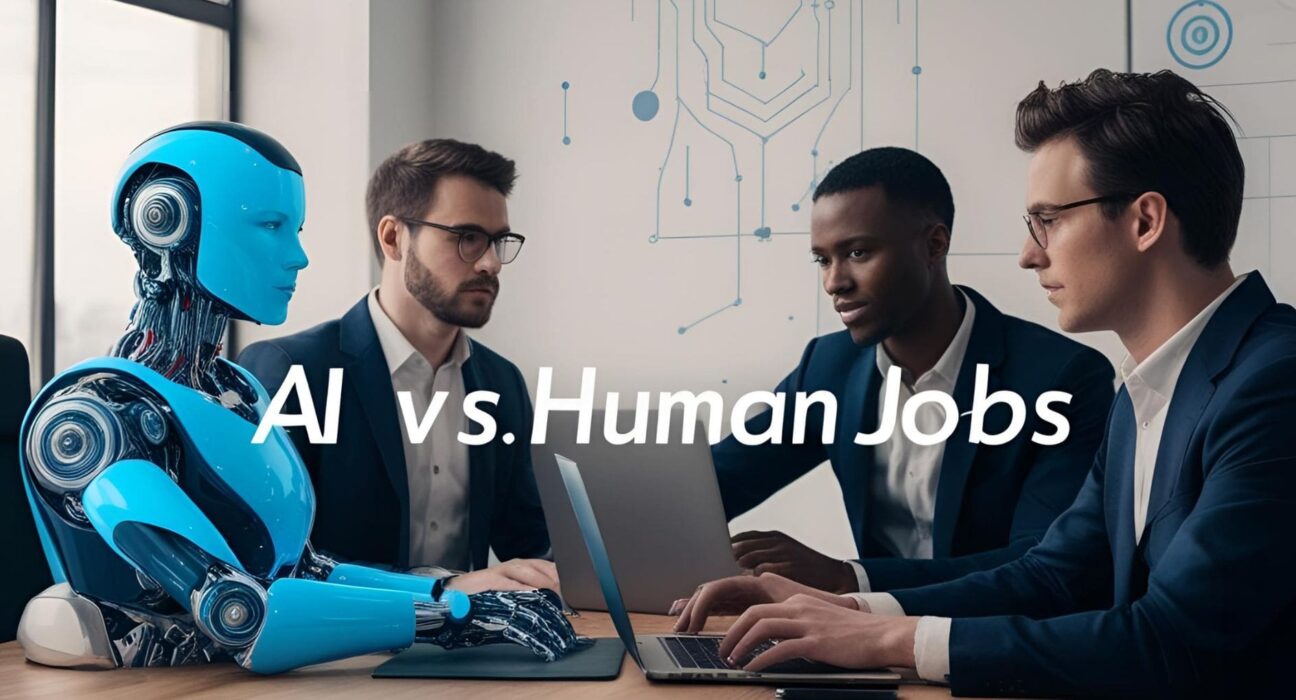AI, or artificial intelligence, isn’t only a concept from science fiction — it’s actively integrated in our lives now. Be it from voice-enabled commercial assistants, advanced self-driving cars, AI chatbots, or even intelligent algorithms that predict your desired content; AI sure is doing some good work.
But with all the advancements, there’s always one question that people tend to ask:
Is AI going to replace me at work?
Don’t worry; it’s not all sad news. Let’s explore the truth together!
AI Is Transforming Jobs Instead of Just Taking Them
AI has the ability to do complex mathematics, find relationships in data, and perform monotonous work with considerable speed. A report by McKinsey in 2023 suggested that AI could automate as much as 30% of tasks performed by humans by the year 2030.
While concerning, the following point is really worth paying attention to:
Technological progress is not intended for people to be replaced with machines; it aims to improve the capabilities of people.
In simple words, there is no need to be annoyed — AI is not trying to get rid of all the jobs. Rather, it wants to assist humans in completing their tasks with greater efficiency and speed.
Let’s check most likely to change jobs
Some professions are more vulnerable than others, particularly those that are repetitive in nature. These include:
- Entering data and keeping records
- Providing customer service (like responding to FAQs)
- Performing basic accounting and bookkeeping services
- Factory assembly line jobs
- Retail store checkouts
However, this does not mean personnel in these areas would be abandoned. They can still be trained to fill gaps where people are needed to make decisions, work in teams, or manage others.
Safer Occupations and growing
Many occupations require personal interaction, which AI cannot easily take over. These include:
- Medical professionals including doctors, nurses, and healthcare workers.
- Educational professionals, including trainers and teachers.
- Creative professionals, like writers, designers and artists.
- Personnel Managers.
- Specialized manual workers, for example – electricians and plumbers.
- AI specialists, developers, and ethics experts
Why artificial intelligence?
AI lacks emotions, creativity and even basic reasoning—which comes so naturally to people.
No AI tool will replace your position but someone who knows how to use AI tools to work faster than you will.
How You Can Stay Ahead
AI is just a tool — and like any tool, it depends on how we use it. Here’s how you can grow in your career:
Keep Learning
Try YouTube, LinkedIn learning, and Coursera.
Work with AI, Not Against it
The best use case for AI is helping people do their work better. It can analyze sales data to help sales people understand the business. Use AI for editing, designing and inspiration.
Discover Rising Fields
AI will create new jobs in Healthcare Technology, Cyber security, Robotics and many more sectors. You can explore these and be open to new opportunities.
Let’s wrap it!
When the Internet was introduced, many people were fearful of new forms of employment. But with time, it transformed the economy and gave rise to digital marketing, online business, app developers, and many more new age services. AI is in the process of doing the same for us today.
But what’s more, people are now asking, “will AI vs Human Jobs?”
AI may disrupt processes, but it is not going to remove jobs for people that are willing to learn and adapt.
To succeed, you need to welcome change, learn as much as you can, apply your knowledge, and always be inquisitive.
It’s AI vs Human Jobs, working together to do amazing things.

